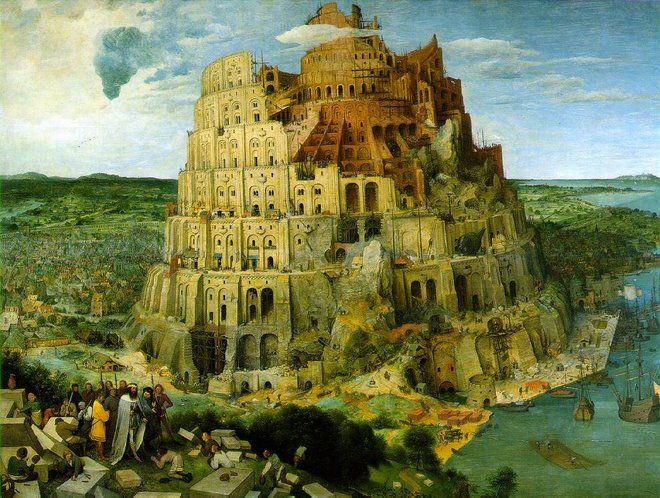
 «Author of one of the first world music hits, Idir has been an ambassador of the Kayble culture (Berber people inhabiting Northern Algeria) since the Seventies. Idir, whose real name is Hamid Cheriet was born in Aït Lahcène, a Berber village in Haute-Kabylie, in 1949. This farmer's son, raised by the Jesuits, started studying Geology and was destined for a career in the petroleum industry. In 1973, he stood in at the last moment for a famous artist on Radio Algiers and sang a lullaby. He recorded this song called "A Vava inouva"(my little father), as a single before leaving for his military service.
«Author of one of the first world music hits, Idir has been an ambassador of the Kayble culture (Berber people inhabiting Northern Algeria) since the Seventies. Idir, whose real name is Hamid Cheriet was born in Aït Lahcène, a Berber village in Haute-Kabylie, in 1949. This farmer's son, raised by the Jesuits, started studying Geology and was destined for a career in the petroleum industry. In 1973, he stood in at the last moment for a famous artist on Radio Algiers and sang a lullaby. He recorded this song called "A Vava inouva"(my little father), as a single before leaving for his military service.This Kabyle song with only vocals and guitar stands as one of the first big hits coming directly from the Maghreb, long before the success of a Khaled or a Mami. He stood for the affirmation of a definite identity, the return to the roots anchored deeply in the history of Algeria. It would be translated into seven languages. After his military service, Idir was contacted by the record company Pathé Marconi. We had to wait until 1976 for a first album to come out on which we also found "A Vava inouva". After notable success, Idir wrote and recorded "Ay Arrac Negh" (to our children), an album which came out in 1979.
For this discreet man with a serious look, it was difficult to blend into the world of show biz and if he enjoyed composing, which he did for others, his stage appearances rarely satisfied him. As a result, he slipped away for about ten years nevertheless giving some recitals. His career started up again with the release of a compilation in 1991 of seventeen songs from his first two albums. After a drawn out lawsuit against his former producer, Idir had the chance to re-record some songs like the famous "A Vava Inouva". Backed by this recording success, he came back to the stage and performed at New Morning in Paris from February 7-9, 1992. He remained the ambassador of the Kabyle community and was now recognised as a forerunner to world music. […]» (RFImusique, read more. Also in  French version)
French version)
 «Idir, nome d'arte di Hamid Cheriet, cantante algerino, nato il 25 ottobre 1955 a Aït Lahcène, un villaggio degli At Yenni in Cabilia. Idir è un nome tradizionale berbero, che significa “vivrà” e viene dato a scopo beneaugurante. È il cantante cabilo più conosciuto all'estero. Deve la sua fama soprattutto a quello che è stato il suo pezzo d'esordio, “A Vava Inouva” (1973), che è stato tradotto in numerose lingue. Si tratta di una composizione molto orecchiabile, composta a partire da una ninna-nanna tradizionale e con le parole del poeta Ben Mohamed, che Idir eseguì alla radio quand'era ancora studente liceale, inventandosi lo pseudonimo che lo ha reso celebre per non far capire ai propri genitori che stava intraprendendo questa carriera. Il successo fu immediato. Da allora Idir ha prodotto un numero tutto sommato limitato di album ma dallo standard qualitativo molto alto. Molti dei suoi pezzi sono su testi di Ben Mohamed. Benché animato dalla intenzione di mantenere viva la propria lingua e le tradizioni della Cabilia, Idir è molto aperto all'incontro con altre lingue e culture, e spesso si esibisce insieme ad altri artisti.» (Mondosalento)
«Idir, nome d'arte di Hamid Cheriet, cantante algerino, nato il 25 ottobre 1955 a Aït Lahcène, un villaggio degli At Yenni in Cabilia. Idir è un nome tradizionale berbero, che significa “vivrà” e viene dato a scopo beneaugurante. È il cantante cabilo più conosciuto all'estero. Deve la sua fama soprattutto a quello che è stato il suo pezzo d'esordio, “A Vava Inouva” (1973), che è stato tradotto in numerose lingue. Si tratta di una composizione molto orecchiabile, composta a partire da una ninna-nanna tradizionale e con le parole del poeta Ben Mohamed, che Idir eseguì alla radio quand'era ancora studente liceale, inventandosi lo pseudonimo che lo ha reso celebre per non far capire ai propri genitori che stava intraprendendo questa carriera. Il successo fu immediato. Da allora Idir ha prodotto un numero tutto sommato limitato di album ma dallo standard qualitativo molto alto. Molti dei suoi pezzi sono su testi di Ben Mohamed. Benché animato dalla intenzione di mantenere viva la propria lingua e le tradizioni della Cabilia, Idir è molto aperto all'incontro con altre lingue e culture, e spesso si esibisce insieme ad altri artisti.» (Mondosalento)
Link in comments











1 comment:
http://sharebee.com/c55d2b3e
Post a Comment